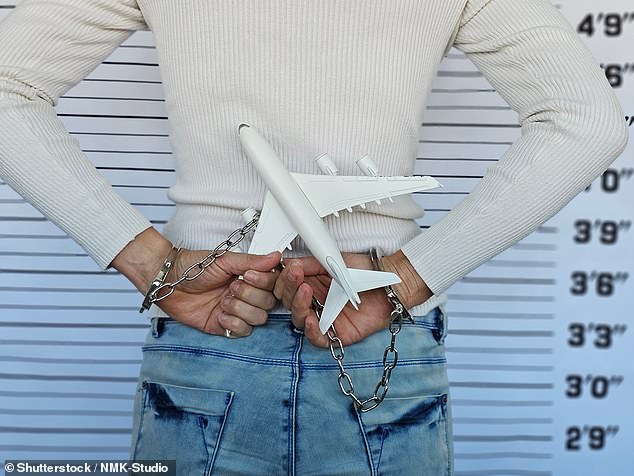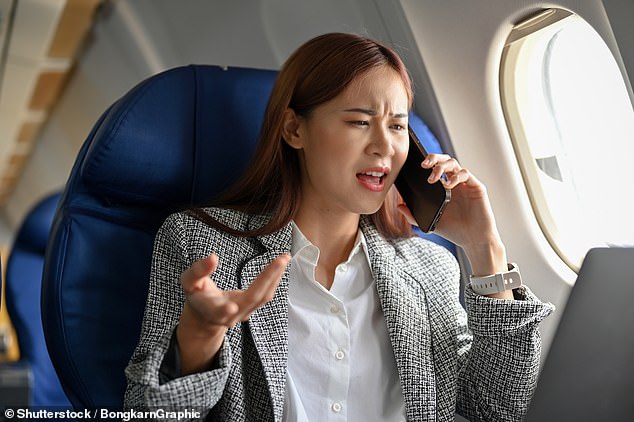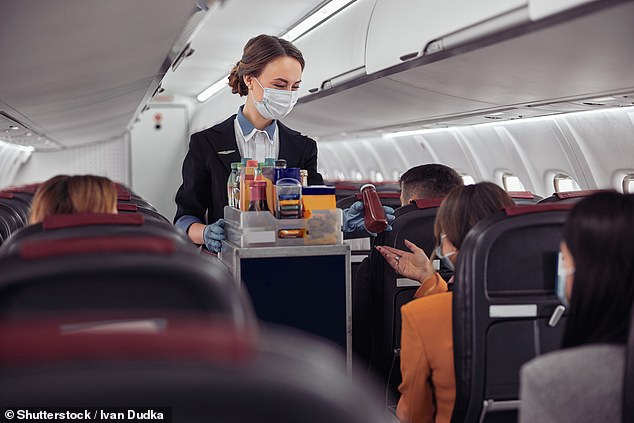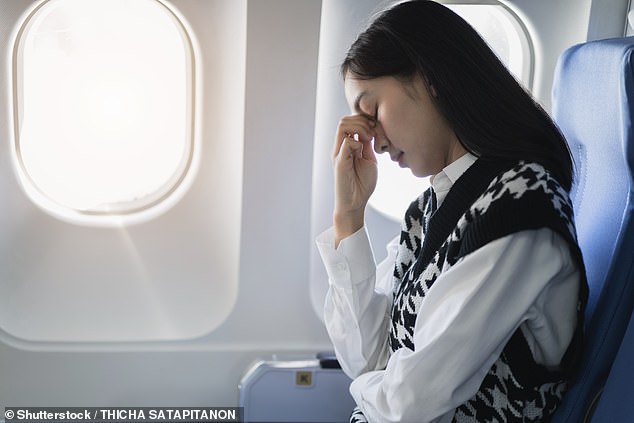I'm a travel expert - this is how you should react if you're sat next to an aggressive passenger on the plane
It's every passengers worst nightmare; an aggressive, unruly traveller sitting nearby, hassling everyone around them.
With thousands of air rage incidents reported each year, it's not uncommon to see reports of passengers being verbally abusive, or even being escorted off planes by officials.
The International Air Transport Association (IATA) stated 'unruly incidents' on flights shot up by half in 2022, according to the Independent.
And in June, Ryanair introduced a hefty £500 for those who stop other passengers enjoying a stress-free flight.
Trapped thousands of feet in the air with only a tiny bathroom to escape into, sitting next to one of these unruly passengers might seem like an impossible situation to deal with.
But psychotherapist Kamalyn Kaur exclusively tells the Daily Mail how passengers should handle aggressive travellers on their journey.
Kamalyn stresses that it isn't the passenger's responsibility to resolve the situation, but outlines five approaches travellers could take to make it easier and safer for themselves.
'The first thing is, you have to stay calm and non-reactive,' the professional, who specialises in high-functioning anxiety and confidence building, explains.



'Aggressive people often feed off reactions. If you keep your voice low, if you keep your body language relaxed, and if you avoid escalating the situation, then sometimes it can just stop the situation from getting worse than what it already is.'
If in a stressful situation, Kamalyn advises passengers to focus on their breathing and regulate their nervous system by closing their eyes and remaining calm.
'The second thing is to set a polite but firm boundary,' the psychotherapist adds.
'It's okay for you to set a boundary. For example, if somebody was being verbally aggressive or talking really loud, you can calmly say, "I'd appreciate it if you could lower your voice," or "I'd appreciate it if you wouldn't swear."'
She advises, 'Keep it short, keep it respectful, and don't add emotion into it.'
Another technique is to defuse the situation by distracting the troubling individual, even with a simple question.
'Use distraction or deflection,' Kamalyn explains. 'Sometimes shifting the focus can help in a very aggressive or emotionally charged situation.
'So you could ask, for example, a very neutral question. "Do you know what time we're landing?" or "Do you know how long is left until the flight ends?"'

The psychotherapist also recommends wearing headphones or watching a video, 'just to avoid the aggression getting to you as well'.
Communicating to cabin crew is also a vital tactic to handling aggressive plane passengers, and the timing is key.
Kamalyn advises, 'The fourth thing is, get support from cabin crew, but get it early before it starts to escalate.'
'What's really important to remember is you're not expected to handle this situation alone.'
She suggests, 'Either discreetly press the call button, or wait until a crew member passes'.
Alternatively, passengers could get up and find a flight attendant and highlight the issue.
'These are people that are trained to manage aggressive passengers,' Kamalyn adds.
The professional also emphasises the importance of personal safety and not allowing the aggression to go too far.

'The fifth and the final thing I'll say is if you feel that the aggression can possibly escalate to physical aggression, or even harassment, then remove yourself immediately from that situation,' she says.
'You have to prioritise your safety. Ask the cabin crew to reseat you or reseat the person that's aggressive, and also just document the incident with them, let them know that this is how you're feeling.'
Kamalyn explains how some passengers may become aggressive on flights because of anxiety and other factors making them uncomfortable and agitated.
'Some people have anxiety about traveling and the thing with anxiety is, if it doesn't come out as anxiety, it can manifest itself as anger,' the psychotherapist says.
'I do think there's an element of being in an enclosed space that can trigger people and make them feel a little bit more on edge,' she adds.
And when it comes to how the cabin crew can help in this situation, a former flight attendant has spoken to us too.
Former British Airways flight attendant Jane Hawkes exclusively tells the Daily Mail how keeping passengers safe is the main priority for cabin crew.
'Safety is top of the agenda, and the reason why cabin crew are on your flight is for your safety,' she says.

Flight attendants use a variety of methods to defuse troublesome situations with aggressive passengers.
Jane explains how 'interpersonal skills are the most effective' and crew members need to 'be able to talk and try to reason with passengers'.
'Passengers need to be aware of the fact that unruly behaviour does have heavy consequences,' she adds.
'When you buy your ticket, you are agreeing to the conditions of carriage of that airline. So in that, you agree to abide by any instructions given by the cabin crew and definitely by the captain of that aircraft.'
She advises reporting inappropriate behaviours 'discreetly' to crew members and try to keep things 'a little bit lowkey'.
'They've got the vigilance,' Jane adds. 'They can see, but they are trained to be able to watch people's behaviour and mannerisms.'
The flight attendant reveals crew members are 'trained to be vigilant' and on how to defuse situations, so 'they don't escalate to an incident endangering either the aircraft or themselves or people on it'.
In severe situations, methods of restraint may need to be used, Jane explains, but this is hopefully avoided.

She reveals verbal aggression is the most common form of unruly passengers, with travellers being vocal and 'quite inclined to start an argument'.
Aggressive passengers are more likely to be on longer flights, which Jane says can happen 'at least once a month' for long-haul crew members - especially when alcohol is often being consumed.
'You've got a long time, and people are drinking for longer as well, if alcohol is available,' she says.
With help from passengers reporting incidents, Jane explains how flight attendants can keep an eye on the consumption.
'Crew can monitor the amount of alcohol that's being consumed in the cabin or by certain passengers,' she adds.
'So if they have a heads up on that, then that's much easier for them to do. They can't do their job as well, unless they have information from you.'
Read more- What actions can flight staff take against seriously aggressive passengers?
- What makes anxious fliers uneasy during flights, and how can cabin crew help calm their nerves in the skies?
- Are passengers ever truly safe in the skies with fellow flyers ready to unleash verbal assaults over seat adjustments?
- Were cabin crew powerless as a rowdy passenger defiantly roamed the aisles during intense turbulence on a turbulent Jet2 journey?
- How did a seemingly calm passenger transform into an aggressive threat, forcing a Ryanair flight's unexpected landing?
Post a Comment for "I'm a travel expert - this is how you should react if you're sat next to an aggressive passenger on the plane"